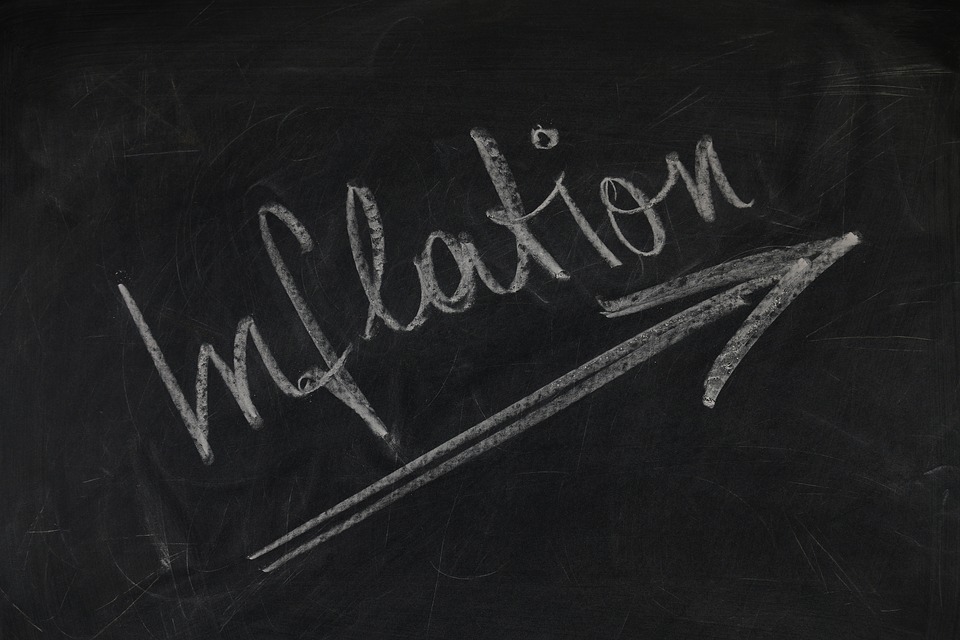Business and Economy
’18 inflation rate seen to stay at 3% level: Diokno

(Pixabay photo) ” width=”960″ height=”640″ /> The Budget and Management chief explained that inflation rate last January remains within the government’s two to four percent target for 2017-19. (Pixabay photo)
MANILA— Budget and Management Secretary Benjamin Diokno said there is no reason for people to be worried about the uptick of Philippines’ January 2018 inflation rate to four percent from 3.3 percent last January, citing that economic fundamantals remain intact.
“Let’s not get worried about it.
The economy is doing very well,” he told journalists Tuesday.
The Budget and Management chief explained that inflation rate last January remains within the government’s two to four percent target for 2017-19.
He said assessment of the inflation development in the first month this year showed that there is unusual uptick, particularly of the rate of price increases on cigarettes.
The Department of Finance (DOF), in an analysis on the January 2018 inflation rate, said businesses’ compliance to the increased cigarette taxes of four percent starting in the first month this year is the main culprit to the uptick in inflation rate.
Inflation of cigarettes registered a faster rate of 17.4 percent last month, higher than the expected eight percent rise, it said.
This after the amended Sin Tax Law, approved in 2012, requires that tax on a pack of cigarettes will be at four percent starting 2018 from PHP12 in 2013, PHP15 in 2014, PHP18 in 2015, PHP21 in 2016 and PHP30 in 2017.
Economic managers have denied that the first package of the Tax Reform for Acceleration and Inclusion (TRAIN) law is to blame for the faster inflation rate at the start of this year.
TRAIN’s first package, which cut personal income tax rates and gives workers’ first PHP250,000 annual income a tax-free rate, took effect January 1 this year.
While it reduced workers’ income tax rates it hiked excise taxes on fuel and sugar-sweetened beverages, among others.
The DOF analysis explained that even as food inflation registered an uptick last January it is because of faster fish inflation, which posted a 12 percent inflation, because of the impact of close-season for fishing, normally between November to February, and the recent typhoon in the Visayas.
Another factor is the correct payment of taxes by Mighty Corporation, which has been bought by JTI Philippines, after erring in the past years.
Citing Bureau of Internal Revenue (BIR) data, the DOF analysis said revenues from cigarette taxes rose by about PHP1.5-Php2 billion last January.
“In fact, if Mighty continued to evade tax and therefore cigarette prices remain low, overall inflation would have gone down to around 3.75 percent,” it said.
While inflation rate last January is already at the upper end of the government’s target band for a three year period, the DOF said its current level “is considered moderate.”
“As the inflation target is set by the BSP (Bangko Sentral ng Pilipinas) for the whole year, one month of higher inflation is not a concern,” citing also base effect since the January 2017 figure is only at 2.7 percent.
The DOF analysis showed that despite the tax reform’s implementation since the start of the year, inflation of sugar-sweetened beverages at 2.8 percent “is expected and indicates that most retailers are still selling oil stock.”
Inflation of alcoholic products at 4.8 percent is also expected due to the Sin Tax Law implementation, it said.
DOF estimates that TRAIN will result to about 0.5-0.7 percentage points increase in inflation rate this year, which is considered “very minimal” and “manageable.”
With these factors, Diokno does not expect inflation to go beyond four percent this year. “I think it will settle slightly above three percent. It will be within range,” he said.
On a monthly basis, inflation may hit four percent level, he said, adding that medium term outlook on prices of oil in the international market shows a a downward path.





















